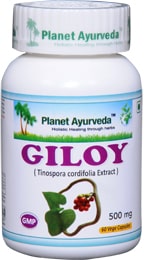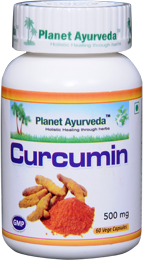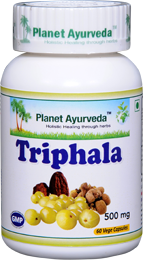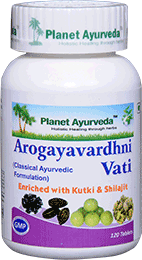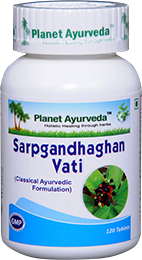Is Gut Bacteria responsible for your high Blood Pressure?
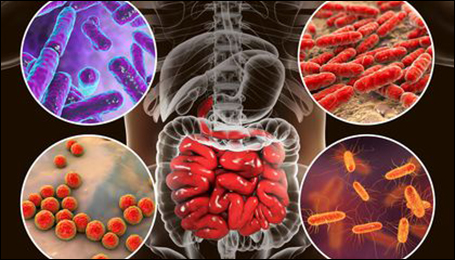
Abstract
Heart health is essential for a long and healthy life, with hypertension (high blood pressure) being one of the most common and serious risk factors for heart disease. Hypertension puts extra strain on the heart and blood vessels, increasing the chances of heart attack, stroke, and other complications. While genetics, diet, stress, and lifestyle are well-known causes of high blood pressure, recent studies suggest that gut bacteria may also play a significant role. This article will explore the various causes of hypertension and delve deeper into whether gut bacteria could be responsible for your high blood pressure.
Introduction
Currently, various researchers state that our gut bacteria is responsible for the origination of various problems. As the relationship between the microbes and blood pressure is a complex one but many researches had concluded an indirect link between Gut bacteria and hypertension. These gut bacteria are responsible for metabolic activities in the body. Gut bacteria can influence obesity, digestion problems, heart diseases, diabetes, high blood pressure and overall immunity.
What is the Role of Gut Bacteria in the Human Body?
There are thousands of micro-organisms that live in our body and play a major role in maintaining health. These bacteria are present since birth and start flourishing during intrauterine life. They are widely present in our gut, mouth, skin and so on, and among them some are beneficial for us while some are not. In our gut, many bacteria are present that belong to various species. Rest the growth of these bacteria depends upon the intake of food, lifestyle and some environmental changes. Basically, the gut bacteria boost the digestion process, anabolic and catabolic activities thus maintains the metabolic process. Gut bacteria also help break down complex foods that our bodies cannot digest on their own, turning them into useful nutrients and energy. They play a key role in controlling how the body stores fat and uses glucose, which affects weight and blood sugar levels. Moreover, these bacteria support brain health by producing certain chemicals that influence mood and mental function, known as the gut-brain connection. Maintaining a healthy balance of gut bacteria is essential for protecting against infections, reducing inflammation, and supporting overall well-being throughout life.
How Gut Bacteria are Responsible for Hypertension or High Blood pressure?
As we know, equilibrium in everything is very much essential for leading a normal life for all the creatures in the universe. In human beings also if the things are in equilibrium it maintains health otherwise leads to diseases. Gut bacteria are required for various activities such as digestion, assimilation, absorption and elimination, as mentioned above. In the gut, these bacteria alter the surrounding mucosal layer of the entire gastrointestinal tract, especially the colon. Alteration in the mucosal layer affects the permeability of the membrane and then imbalances the selective permeability of the membranes thus deranges the adsorbents in the bloodstream. Increased permeability raises the pressure of the blood. The blood while circulation exerts pressure on the arteries, this is nothing but blood pressure. Hence, the gut bacteria are responsible for the causation of high blood pressure.
Some Risk Factors that Affect the Gut Flora thereby High Blood Pressure
There are some exacerbating factors that vitiate the gut flora thereby raise the blood pressure
- Smoking and Alcohol Consumption: Both smoking and alcohol intake significantly disrupt the composition and diversity of the gut microbiota. These substances induce oxidative stress and inflammatory responses, leading to dysbiosis, which negatively impacts gut barrier function and systemic health.
- Genetic Predisposition: Certain genetic polymorphisms influence the host immune response and gut mucosal environment, creating conditions that favor the overgrowth of specific microbial populations, thereby altering microbial homeostasis.
- Environmental Factors: Seasonal variations, such as increased humidity during monsoon, promote rapid proliferation of pathogenic bacteria in the gut. These environmental changes can exacerbate systemic inflammation and contribute to elevated blood pressure.
- Diet and Lifestyle: Dietary patterns rich in fermented foods, high-fat, spicy, salty, and processed foods profoundly affect gut microbial composition. A sedentary lifestyle combined with exposure to environmental pollutants, including contaminated water, disrupts gut microbial balance, facilitating endotoxemia and metabolic dysregulation linked to hypertension.
- Medical History: Pre-existing gastrointestinal disorders impair normal gut functions and barrier integrity, altering microbial ecosystems and contributing to systemic inflammatory states associated with elevated blood pressure.
Ayurvedic Overview – Is Gut Bacteria Responsible for Your High Blood Pressure?
In Ayurveda, the gut is considered the seat of Agni—the digestive fire responsible for breaking down food, absorbing nutrients, and maintaining overall health. A strong, balanced Agni ensures proper digestion and metabolic function, while a weak or disturbed Agni leads to the accumulation of Ama (toxins), which can cause disease. Gut bacteria, though not described explicitly in classical Ayurvedic texts, can be understood as a modern scientific counterpart to the balance of Agni and Doshas in the digestive system. A healthy gut microbiome supports digestion, nutrient absorption, immune function, and toxin elimination—functions similar to those maintained by balanced Agni. When gut bacteria are imbalanced (a condition known as dysbiosis), it can lead to poor digestion, toxin buildup, and imbalance in the body’s doshas, especially Vata and Pitta. This imbalance may manifest as digestive issues, inflammation, and chronic conditions such as hypertension, obesity, or autoimmune disorders. Ayurveda emphasizes restoring digestive health by balancing Agni and cleansing Ama through diet, herbal formulations, and lifestyle practices. This holistic approach helps nurture beneficial gut bacteria, supporting overall health and preventing disease.
Herbal Remedies For Balancing Gut Bacteria And Managing High Blood Pressure By Planet Ayurveda
Planet Ayurveda is dedicated to offering authentic, pure, and natural herbal products crafted with the wisdom of ancient Ayurveda combined with modern quality standards. Effective formulations promote holistic health and overall well-being by using only standardized herbs and ensure that the products contain no chemicals, additives, or preservatives, guaranteeing both safety and efficacy. Mission of Planet Ayurveda is to spread Ayurveda on the whole Planet by supporting overall wellbeing with natural herbs and minerals. With a strong commitment to quality and tradition, Planet Ayurveda is trusted partner for natural health solutions rooted in Ayurveda. For balancing Gut Bacteria and managing High Blood Pressure due to the same Planet Ayurveda provides various Herbal Remedies. Let’s have a look at the same!
- Giloy Capsules
- Circumin Capsules
- Triphala Capsules
- Arogyavardhini Vati
- Sarpgandhaghan Vati
Product Description
1. Giloy Capsules
Giloy Capsules is a single herbal capsule formulation made by Planet Ayurveda with Standardized extract of herb Giloy (Tinospora cordifolia). It helps balance gut bacteria by promoting healthy digestion and enhancing immunity. Its natural anti-inflammatory and antimicrobial properties support a healthy gut environment, reduce harmful microbes, and encourage the growth of beneficial bacteria, thereby improving overall gut health and metabolic balance.
Dosage: 1-2 capsules twice daily with plain water after meals.
2. Curcumin Capsules
Curcumin Capsules by Planet Ayurveda is a single-herb formulation containing a standardized extract of Curcumin (Curcuma longa). helps balance gut bacteria by creating a healthy environment in the digestive system. It inhibits harmful bacteria growth while encouraging beneficial microbes to thrive. This natural anti-inflammatory compound supports gut lining health, aids digestion, and enhances the body’s ability to maintain a stable and diverse gut microbiome.
Dosage: 1-2 capsules twice daily with plain water after meals.
3. Triphala Capsules
Triphala Capsules are polyherbal capsules by Planet Ayurveda. They consist of herbs such as Amalaki (Emblica officinalis), Haritaki (Terminalia chebula), and Bibhitaki (Terminalia bellirica). This remedy supports gut bacteria by acting as a natural prebiotic, nourishing beneficial microbes and promoting a healthy gut environment. It helps regulate bowel movements, reduce inflammation, and detoxify the colon. The formulation enhances digestion, supports microbial balance, and prevents the overgrowth of harmful bacteria.
Dosage: 1-2 capsules twice daily with plain water after meals.
4. Arogya Vardhini Vati
Arogyavardhini Vati is a classical Ayurvedic formulation known for its powerful detoxifying, liver-supporting, and digestive properties. It contains a combination of herbs and minerals such as Kutki (Picrorhiza kurroa), Chitrak (Plumbago zeylanica), Haritaki (Terminalia chebula), etc. It supports gut health by enhancing Agni (digestive fire), detoxifying the liver, and regulating bile secretion—all of which create a balanced internal environment for healthy gut bacteria to thrive.
Dosage: 1-2 tablets twice daily with plain water after meals.
5. Sarpagandha Vati
Sarpagandhaghan Vati is a classical Ayurvedic formulation primarily used for managing hypertension and calming the nervous system. It contains Sarpagandha (Rauwolfia serpentina) along with other herbs that help regulate blood pressure by reducing stress, improving sleep, and calming Vata dosha. In terms of gut health, its calming effect on the nervous system positively influences the gut-brain axis, promoting balanced digestion. By reducing anxiety and stress—which are known to disrupt gut flora and contribute to hypertension—it indirectly supports a healthy gut environment and contributes to overall cardiovascular and digestive wellness.
Dosage: 1-2 tablets twice daily with plain water after meals.
Some Home Remedies that are Helpful to maintain Gut Flora therefore Hypertension
- Aloe Vera Juice: Helps detoxify the digestive tract and soothes inflammation.
- Triphala Juice: Supports bowel regularity, detoxifies the colon, and balances gut bacteria.
- Giloy Juice (Tinospora cordifolia): Strengthens immunity, improves digestion, and maintains metabolic health.
- Tulsi Juice (Ocimum sanctum): Acts as an adaptogen, improves digestion, and reduces stress-related hypertension.
Conclusion
Gut bacteria significantly influence high blood pressure by affecting digestion, metabolism, and inflammation. An imbalance in gut flora disrupts the gut lining, increases permeability, and leads to systemic inflammation, which can raise blood pressure. Factors such as diet, lifestyle, genetics, and environment affect gut health and contribute to hypertension. Ayurveda highlights the importance of balanced Agni for proper digestion and toxin elimination, which supports healthy gut bacteria. Restoring gut balance through diet, lifestyle changes, and natural remedies can help manage high blood pressure and promote overall health and wellbeing.
Frequently Asked Questions About Relation Of Gut Health And High Blood Pressure
1. Are probiotics useful for managing high blood pressure?
Some studies suggest that probiotics can improve gut health and modestly reduce blood pressure by restoring balance to the gut microbiome, but more research is needed.
2. Can antibiotics affect blood pressure through gut health?
Antibiotics can disrupt the gut microbiome, potentially affecting blood pressure regulation temporarily or longer-term by altering gut bacteria populations.
3. How does stress impact gut health and blood pressure?
Stress negatively affects gut microbiota diversity and gut barrier function, which can increase inflammation and blood pressure.
4. Are there specific gut bacteria linked to blood pressure regulation?
Certain bacteria producing SCFAs (like acetate, propionate) are associated with better blood pressure control, while others linked to inflammation may raise it.
5. Can improving gut health help reduce reliance on blood pressure medications?
Improving gut health through diet, probiotics, and lifestyle changes can support blood pressure management but should be complementary to prescribed treatments, not replacements.


